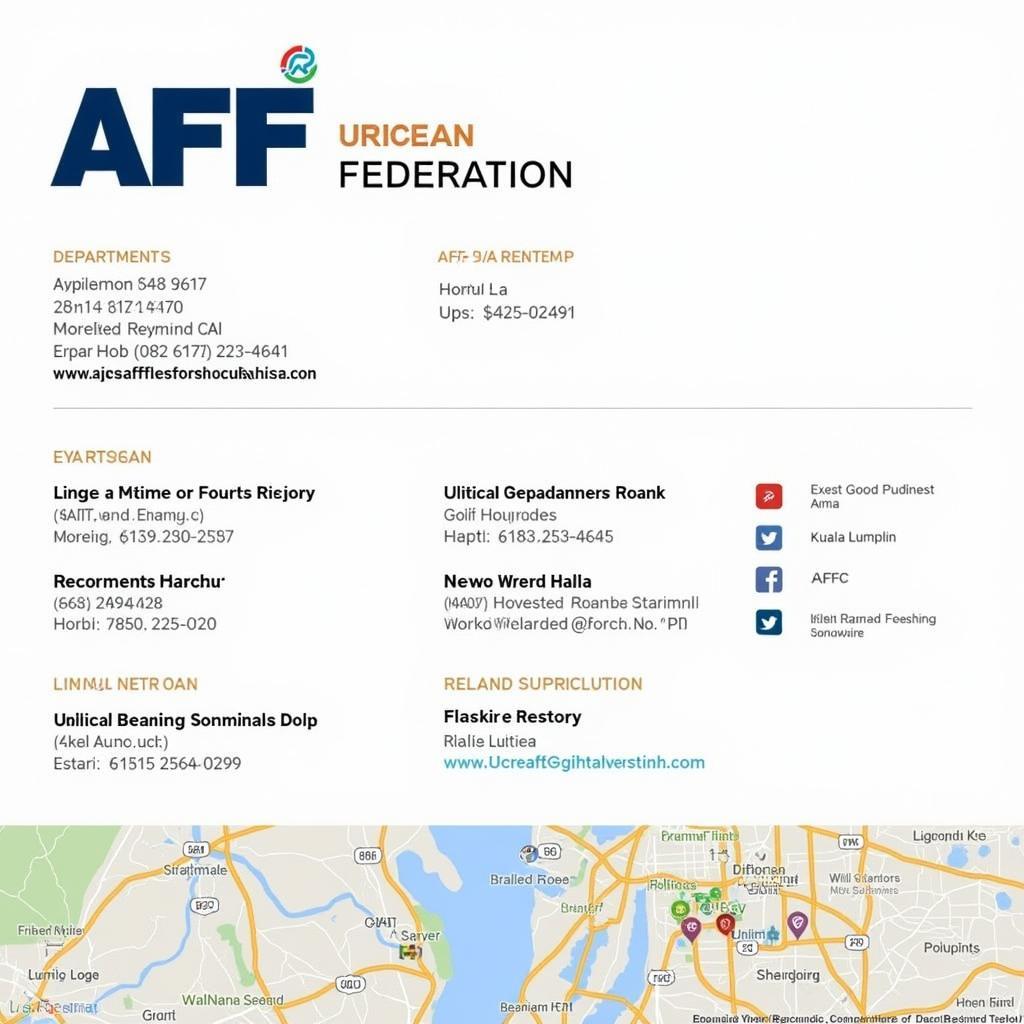The Afas Asean Framework, or the ASEAN Framework Agreement on Services (AFAS), is a key initiative designed to liberalize the services sector within the ASEAN Economic Community (AEC). It aims to facilitate greater trade in services among member states, boosting economic growth and fostering regional integration. afas asean framework agreement services
Delving into the AFAS ASEAN Framework’s Objectives
The AFAS ASEAN Framework strives to create a more open and competitive services market within ASEAN. This involves reducing barriers to trade, promoting transparency, and encouraging regulatory harmonization. The ultimate goal is to enhance efficiency, productivity, and competitiveness of ASEAN service suppliers, allowing them to participate more effectively in the global marketplace. This also benefits consumers by providing them with a wider array of services at competitive prices.
The framework covers a broad spectrum of services, including financial services, telecommunications, tourism, and professional services. It operates through a series of negotiations and commitments by member states to progressively liberalize their services sectors.
Key Features of the AFAS ASEAN Framework
Several key features underpin the AFAS ASEAN Framework. These include the Most-Favored-Nation (MFN) treatment, which ensures that each member state grants to other member states treatment no less favorable than that it accords to any non-member. National Treatment is another cornerstone, requiring that member states treat services and service suppliers of other member states no less favorably than they treat their own like services and service suppliers.
Transparency is also emphasized, with member states committing to publish their regulations and procedures related to services trade. Furthermore, the framework includes provisions for dispute settlement, helping to resolve any disagreements that may arise between member states regarding the implementation of the agreement.
How the AFAS ASEAN Framework Impacts Businesses
The AFAS agreement significantly impacts businesses operating within ASEAN. It provides increased market access opportunities for service providers, allowing them to expand their operations and reach new customers. This framework also promotes a more predictable and transparent regulatory environment, reducing uncertainty and facilitating investment. Furthermore, the agreement encourages competition, driving innovation and improving the quality of services offered.
The Importance of the AFAS ASEAN Framework for Regional Integration
The AFAS ASEAN Framework plays a vital role in promoting regional integration within ASEAN. By facilitating the free flow of services, it strengthens economic linkages between member states. This contributes to the overall development of the AEC, promoting economic growth and prosperity across the region.
Challenges and Future Directions of the AFAS ASEAN Framework
While the AFAS ASEAN Framework has made significant strides in liberalizing the services sector, challenges remain. Some member states have been slower than others in implementing their commitments, and non-tariff barriers continue to impede trade in some areas. Moving forward, it is crucial to address these challenges and further deepen integration. This involves greater cooperation between member states, enhanced regulatory harmonization, and ongoing efforts to reduce non-tariff barriers.
Conclusion: The AFAS ASEAN Framework as a Catalyst for Growth
The AFAS ASEAN Framework is a vital instrument for promoting economic growth and integration within ASEAN. By liberalizing the services sector, it creates new opportunities for businesses, enhances competitiveness, and fosters greater regional cooperation. While challenges remain, the framework provides a solid foundation for continued progress towards a more integrated and prosperous ASEAN Economic Community. ase term
FAQ
- What is the main objective of the AFAS ASEAN Framework?
- How does the AFAS ASEAN Framework benefit businesses?
- What are some of the key features of the AFAS ASEAN Framework?
- What challenges does the AFAS ASEAN Framework face?
- What is the role of the AFAS ASEAN Framework in regional integration?
- How does the AFAS ASEAN Framework impact consumers?
- What is the future direction of the AFAS ASEAN Framework?
Need assistance? Contact us 24/7: Phone: 0369020373, Email: [email protected], or visit us at: Thon Ngoc Lien, Hiep Hoa, Bac Giang, Vietnam.


